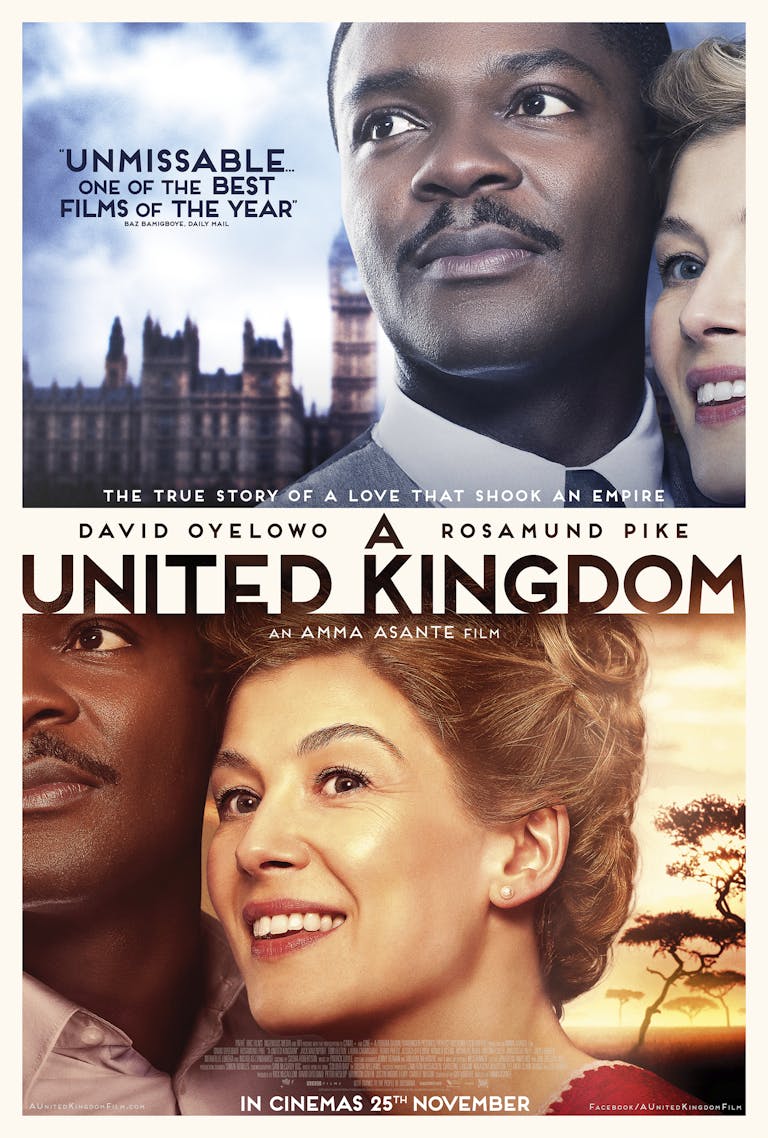
Seretse Khama, a brilliant young African law student, met Ruth Williams, a young white woman from a modest English working family, at a dance in London in 1947. It was love at first sight. He proposed to her a few weeks later, and she immediately agreed. But Ruth’s father disapproved of the bi-racial match, and threatened to throw her out of the house. Seretse faced even sterner obstacles; he was being groomed to become king of the Bangwato nation in his native Bechuanaland. And bringing home a white wife who would become his queen flew in the face of his people’s traditions. Opposition to the proposed marriage spread fast. The UK government was concerned it would set a precedent for racial equality that might weaken the British Empire. African nations under white minority rule (notably South Africa) were furious at the prospect. The couple found themselves at the centre of an international controversy, with top-level arguments about their relationship raging on two continents. But despite all the obstacles they faced, their determination to be with each other won through. Their inspiring, triumphant true story triggered a chain of events that defied racist, intolerant attitudes, helped transform the political landscape of a large part of Africa – and proved to the world the power of their love.
BIFA voters say:
“This film is very clever in who it gets you to route for. The story manages to get across how politics was, and can be, used to manipulate a country using two people in love. Rosamund and David’s chemistry is unbelievable.”